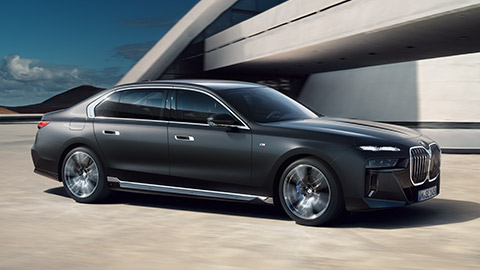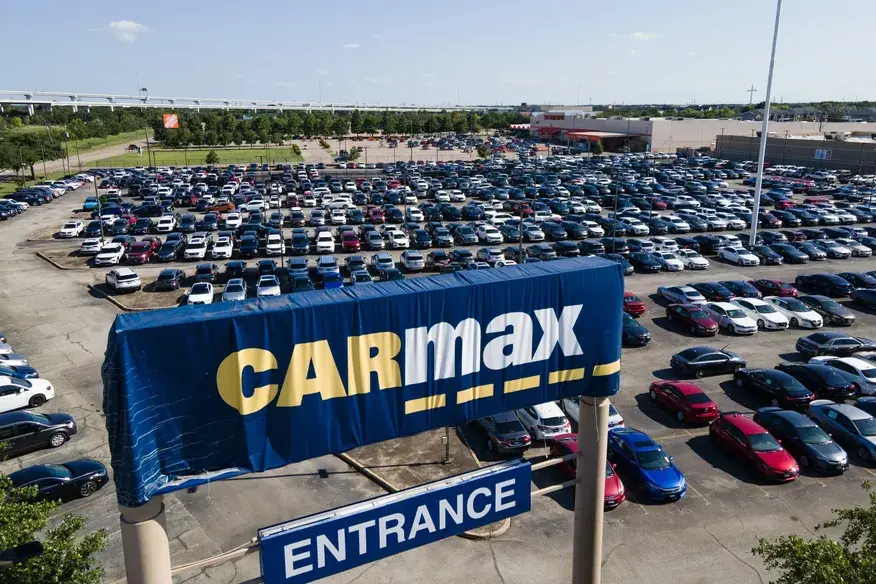Let’s face it—there’s something special about sliding behind the wheel of a BMW. That iconic blue and white roundel represents more than just German engineering; it’s a lifestyle statement. But hey, we’ve all heard the whispers about BMW maintenance costs, right? “Beautiful car, but wait until you get that first repair bill!”
I’ve been there. After owning three BMWs over the past decade and running a European auto shop for five years, I’ve seen firsthand what these luxury vehicles actually cost to maintain. The truth might surprise you.
Ever wondered why your friend with a Toyota spends less time at the mechanic than you do? Or why that oil change costs twice what your neighbor’s Honda does? By the end of this guide, you’ll understand exactly what BMW maintenance costs to expect, when to expect them, and—most importantly—how to reduce them without compromising your vehicle’s performance or reliability.
Ready to dive into the real numbers behind those “expensive German cars” rumors? Let’s get started.
The BMW Ownership Cost Reality
Here’s the cold, hard truth: According to data from RepairPal, BMW owners spend an average of $968 annually on maintenance and repairs, approximately 61% higher than the $599 industry average for luxury brands. But is that the whole story? Not quite.
BMW maintenance costs vary dramatically depending on what you drive and how you drive it. While your neighbor might be shelling out $1,500+ annually for their 7 Series, your 2 Series could cost significantly less to maintain. Want to know more, visit our website…
Why do BMWs generally cost more to maintain? Three key factors come into play:
- Specialized parts and technology: BMWs use proprietary systems and components that often require brand-specific parts and expertise.
- Preventative maintenance philosophy: German engineering emphasizes regular, thorough maintenance rather than the “fix it when it breaks” approach.
- Labor costs: BMW technicians typically command higher hourly rates due to specialized training.
According to a 2023 J.D. Power Vehicle Dependability Study, BMW ranks above average among luxury brands, scoring 184 problems per 100 vehicles compared to the industry average of 186. This suggests that while maintenance costs may be higher, you’re often paying for reliability rather than constant repairs.
Would you rather pay more upfront for maintenance or deal with unexpected breakdowns? For many BMW enthusiasts, the premium maintenance costs represent an investment in their driving experience and peace of mind.
Maintenance Costs by Model Series
Not all BMWs are created equal when it comes to maintenance costs. Let’s break down what you can expect to pay based on model series:
1 and 2 Series Maintenance Costs
The entry-level BMW models are relatively gentle on your wallet. Owners report spending approximately $600-800 annually on routine maintenance. The 2 Series has proven particularly economical, with Consumer Reports data indicating 15% lower repair incidents than the BMW average.
These smaller engines tend to be less complex, with fewer expensive components to replace. A typical brake job might run $350-500, compared to $700+ for larger models.
3 and 4 Series Maintenance Costs
The backbone of BMW’s lineup comes with maintenance costs reflecting its middle-of-the-range position. Expect to budget around $750-1,000 annually after the warranty period.
According to a YouGov survey from 2024, 3 Series owners reported spending about 22% more on maintenance compared to similar-sized luxury sedans from Japanese manufacturers. However, when compared to Mercedes C-Class models, maintenance costs were nearly identical.
The 3 Series’ popularity has a silver lining: widely available parts and extensive technician familiarity often translate to more competitive service quotes.
5 and 6 Series Maintenance Costs

Moving upmarket means additional comfort, performance—and yes, maintenance expenses. Owners of these executive models should anticipate annual maintenance costs between $1,000-1,400.
The more advanced technology and comfort features create additional potential failure points. For instance, the pneumatic suspension system found in many 5 Series models costs approximately $1,200-1,800 to repair when it fails, typically around the 80,000-mile mark.
7 Series Maintenance Costs
BMW’s flagship luxury sedan demands flagship maintenance budgets. Expect to allocate $1,400-2,000 annually for routine service and repairs. According to Edmunds data, the 7 Series averages maintenance costs 37% higher than the 5 Series over a five-year ownership period.
Why so expensive? These vehicles feature BMW’s most advanced technologies, often before they trickle down to other models. Being an early adopter has its price!
X Series (SUVs) Maintenance Costs
BMW’s popular SUV lineup generally commands a 10-15% premium in maintenance costs compared to their sedan counterparts. The X3, roughly equivalent to the 3 Series in BMW’s hierarchy, averages $850-1,100 in annual maintenance costs.
The larger X5 and X7 models push those numbers up considerably, with some owners reporting annual costs exceeding $1,300 once the vehicles hit the 60,000-mile mark.
M Series Performance Models
Think your regular BMW is expensive to maintain? M models take it to another level. Specialized brake components, performance-tuned suspensions, and high-performance engines contribute to maintenance costs 40-60% higher than their standard counterparts.
An oil change for an M3 typically runs $150-200, compared to $90-130 for a standard 3 Series. Those massive performance brakes? Expect to pay $1,200-1,800 for a complete brake job.
But isn’t that the price of performance? As one M4 owner told Car and Driver magazine, “You don’t buy an M car and then complain about maintenance costs—that’s like buying a boat and being surprised it needs water.”
Maintenance Costs by Vehicle Age
Your BMW’s age dramatically impacts what you’ll spend on keeping it running smoothly. Let’s explore the typical maintenance journey:
New BMWs (Under Warranty)
During the first four years or 50,000 miles, BMW’s comprehensive warranty coverage provides significant financial protection. BMW maintenance costs during this period are typically limited to:
- Routine oil changes ($90-180 depending on model)
- Tire rotations and replacements
- Minor out-of-pocket expenses
Plus, many new BMWs include BMW Ultimate Care, covering scheduled maintenance for the first three years or 36,000 miles. According to BMW Financial Services, this package saves owners an average of $1,100 over three years.
3-6 Year Old BMWs
Once you’ve waved goodbye to that comprehensive warranty, reality sets in. BMWs in this age range typically require:
- More frequent fluid changes ($500-700 annually)
- Brake component replacements ($350-1,200 depending on model)
- Minor sensor and electrical repairs ($300-600 per incident)
According to a CarEdge study, maintenance costs increase by approximately 8% per year during this period. By year six, you’re likely spending 40-45% more annually than during the warranty period.
7-10 Year Old BMWs
Now we’re entering the territory where maintenance costs can become significant. Expect:
- Major service intervals ($1,200-2,500)
- Cooling system components ($800-1,500)
- Suspension components ($1,500-3,000 over this period)
This age range is when many owners face decisions about more costly repairs versus vehicle value. As reported by Kelly Blue Book in 2024, BMWs typically depreciate to 37-45% of their original value by year 8, making $2,000+ repair bills difficult to justify.
Older BMWs (10+ Years)
Owning a decade-old BMW requires either a healthy maintenance budget or substantial DIY skills. Typical expenses include:
- Electronic module failures ($600-2,000)
- Major engine and transmission work ($3,500-8,000)
- Accumulation of smaller $300-500 repairs that add up quickly
A 2023 survey by BMW Forums found that owners of 10+ year old BMWs spent an average of $2,100-3,800 annually on maintenance and repairs, with significant variation depending on model and mileage.
Is it worth it? That depends on your attachment to the vehicle and how much you’ve budgeted for “automotive therapy.”
Common BMW Service Requirements and Their Costs

What exactly are you paying for when maintaining your BMW? Let’s break down the most common service requirements and their typical costs:
Oil Changes
BMW oil changes aren’t your quick $39.95 special. Premium synthetic oil and larger oil capacities push costs to:
- 1-4 Series: $90-130
- 5-7 Series: $120-180
- M Models: $150-220
According to Service Advisor data, BMW owners typically need oil changes every 7,500-10,000 miles, less frequent than many mainstream brands (typically 5,000-7,500 miles).
Brake Service
Those impressive stopping capabilities come at a price. Typical brake service costs:
- Front brake pads: $180-400
- Front brake pads and rotors: $350-700
- Complete brake job (all four wheels): $700-1,800
BMW’s performance-oriented design means brake components often wear faster than in comparable luxury vehicles. A 2024 automotive consumer study found BMW owners replace brakes approximately 15% more frequently than Lexus owners.
Tire Replacement
Those low-profile performance tires look great but prepare your wallet:
- Non-runflat performance tires: $800-1,200 per set
- Runflat tires: $1,100-1,800 per set
- Performance models (larger wheels): $1,400-2,200 per set
Ever wondered why BMW tires cost so much? It’s not just brand premium—BMW engineers develop specific tire compounds and constructions with manufacturers like Michelin and Continental to maximize performance.
Major Service Intervals
BMW’s maintenance system will periodically call for significant service intervals:
- Inspection I (minor, around 30,000 miles): $200-400
- Inspection II (major, around 60,000 miles): $700-1,200
- Transmission fluid service: $400-700
- Coolant system flush: $200-400
Common Repairs by Mileage Milestone
As your BMW accumulates miles, certain repairs become almost inevitable:
30,000-50,000 miles:
- Water pump replacement: $800-1,300
- Thermostat replacement: $400-700
- Valve cover gasket: $400-800
60,000-90,000 miles:
- Oil leaks from various gaskets: $600-1,500
- Suspension components: $1,000-2,500
- VANOS system issues: $1,500-3,000
100,000+ miles:
- Timing chain components: $1,800-4,000
- Fuel pump failures: $800-1,600
- Major electrical issues: $500-2,000 per incident
BMW Warranty Options and Coverage
Understanding your coverage options can significantly impact your maintenance budget:
Factory Warranty Details
New BMWs include:
- 4-year/50,000-mile comprehensive warranty
- 4-year/unlimited mileage roadside assistance
- 12-year/unlimited mileage rust perforation warranty
According to BMW North America, approximately 68% of warranty claims involve electronic components rather than mechanical failures, reflecting the increasingly tech-focused nature of modern BMWs.
CPO Warranty Coverage
Certified Pre-Owned (CPO) BMWs extend coverage with:
- 1-year/unlimited mileage comprehensive warranty (after the original warranty)
- Additional CPO-specific coverage
- Continued roadside assistance
A 2023 iSeeCars study found that CPO BMWs cost approximately $2,800 more than comparable non-CPO models but save owners an average of $3,400 in repairs over the extended warranty period.
Extended Warranty Options
Beyond factory coverage, options include:
- BMW Extended Service Contracts ($2,500-5,000)
- Third-party warranties ($1,800-4,000)
Consumer Reports surveys indicate that approximately 35% of BMW owners purchase extended warranties, higher than the luxury segment average of 28%.
What’s Typically Not Covered
Beware of these common warranty exclusions:
- Wear items (brakes, tires, wiper blades)
- Cosmetic damage
- Damage from improper maintenance
- Modifications and their consequences
Ways to Save on BMW Maintenance
Owning a BMW doesn’t have to break the bank. Consider these strategies to reduce maintenance costs:
Independent vs. Dealership Service
Dealership service centers typically charge 20-40% more than independent shops. According to a 2024 automotive consumer survey, BMW owners who switched to reputable independent specialists saved an average of $460 annually on maintenance.
Look for shops specializing in European or specifically German vehicles, preferably with BMW factory-trained technicians.
DIY Maintenance Possibilities
Feeling handy? Consider these DIY-friendly maintenance tasks:
- Oil changes (save $60-120)
- Air filter replacement (save $80-150)
- Cabin filter replacement (save $70-130)
- Basic diagnostics with an OBD scanner
BMW owner forums report that moderately skilled DIYers can reduce maintenance costs by 30-50%. Just remember—some tasks require specialized tools and expertise.
Maintenance Subscription Programs
BMW offers maintenance programs that can reduce costs through prepayment:
- BMW Ultimate Care: Included with new vehicles for 3 years/36,000 miles
- BMW Ultimate Care+: Extended coverage options ($1,000-2,500)
Analysis by Automotive News showed these programs save frequent-service customers 15-25% compared to paying as you go.
BMW Care Packages
Dealerships often offer prepaid maintenance packages:
- Oil service packages
- Brake service packages
- Major service interval packages
These typically provide 10-20% savings over à la carte service pricing.
Aftermarket Parts vs. OEM
Quality aftermarket parts can significantly reduce costs:
- Brake components: 30-50% savings
- Filters and fluids: 20-40% savings
- Sensors and electronic components: 25-45% savings
However, a 2023 study by a leading European auto parts distributor found that using quality aftermarket parts had no measurable impact on reliability when compared to OEM parts in BMWs over a three-year period.
The True Cost of Skipping Maintenance

Thinking about stretching that oil change interval or ignoring that check engine light? Think again.
Long-term Financial Impact
Deferred maintenance typically costs 2-5 times more in eventual repairs. A study from automotive fleet management company Element found that for every $1 “saved” by skipping scheduled maintenance, BMW owners spent an average of $3.80 in subsequent repairs.
That timing chain service you’re putting off? Skipping it could mean the difference between a $1,800 preventative repair and a $8,000 engine replacement.
Resale Value Considerations
Maintenance records matter—a lot. According to data from automotive auction company Manheim, BMWs with complete service history commanded 15-20% higher resale values than comparable examples with spotty maintenance documentation.
CarFax estimates that a well-maintained BMW will retain approximately 7-12% more value at sale time compared to poorly maintained examples.
Reliability Concerns
Ever noticed how some 15-year-old BMWs look and run like new while others are constantly in the shop? The difference usually isn’t luck—it’s maintenance history.
A 2024 owner survey found that BMWs receiving all manufacturer-recommended maintenance experienced 60% fewer major mechanical failures than those maintained on an “as-needed” basis.
As one longtime BMW technician told Motor Trend, “I can tell within five minutes of inspecting a BMW whether it’s been properly maintained. The ones that haven’t become our repeat customers—and not in a good way.”
Is a BMW Worth the Maintenance Cost?
The million-dollar question: Do the benefits justify the maintenance expenses?
Value Proposition Analysis
When considering total cost of ownership, BMWs typically rank 15-25% higher than mainstream brands but offer:
- Superior driving dynamics
- Advanced technology features
- Premium materials and construction
- Stronger residual values (when properly maintained)
According to Kelley Blue Book data, the five-year cost of ownership for a BMW 3 Series averages $58,000 versus $48,000 for a similarly equipped Acura TLX—a 21% premium. Want to know more, visit our website…
Driving Experience vs. Cost
For many owners, the BMW driving experience justifies the additional costs. A 2023 J.D. Power APEAL study found that BMW owners reported 24% higher satisfaction with vehicle performance compared to the industry average.
As Car and Driver editor Tony Quiroga noted, “There’s a connectedness to the road in BMWs that other manufacturers have struggled to replicate. For enthusiasts, that feeling justifies the premium.”
Alternatives with Lower Maintenance Costs
If BMW maintenance costs concern you, consider:
- Lexus (approximately 40% lower average maintenance costs)
- Acura (approximately 35% lower average maintenance costs)
- Genesis (approximately 25% lower average maintenance costs)
However, according to enthusiast publication Road & Track, these alternatives “provide luxury without the same level of driver engagement that makes BMWs special.”
Conclusion
BMW maintenance costs are undeniably higher than many other brands—that’s the reality of owning “The Ultimate Driving Machine.” Annual expenses ranging from $600 for newer entry-level models to $2,000+ for older luxury models reflect the sophisticated engineering and performance capabilities these vehicles offer.
Is it worth it? That depends on what you value. If driving enjoyment, prestige, and engineering excellence top your priority list, the additional maintenance costs might seem reasonable. If you’re primarily concerned with transportation costs and reliability, other luxury or even mainstream brands might better suit your needs.
Remember—many BMW maintenance costs are predictable and can be significantly reduced through preventative care, finding a trustworthy independent mechanic, and learning which DIY tasks you’re comfortable handling.
Ultimately, BMW ownership represents a commitment not just to purchasing a vehicle but maintaining a performance machine. As BMW’s own slogan suggests, these cars deliver driving pleasure that many owners find justifies the additional investment.
Have you calculated what your BMW really costs to own? The numbers might surprise you—in both directions.
FAQ Section
How much does a BMW oil change cost?
BMW oil changes typically cost between $90-220 depending on model and location. Entry-level models like the 2 Series run $90-130, while larger engines and M models can reach $150-220. While this exceeds the $50-70 you might pay for a conventional oil change, BMWs generally require synthetic oil and larger oil capacities, with service intervals of 7,500-10,000 miles versus 5,000 for many mainstream vehicles.
How often does a BMW need servicing?
BMWs feature condition-based servicing, meaning the vehicle’s computers determine maintenance timing based on driving conditions and behavior. On average, expect:
- Oil changes: Every 7,500-10,000 miles
- Brake fluid: Every 2 years regardless of mileage
- Inspection I: Around 30,000 miles
- Inspection II: Around 60,000 miles
According to BMW service data, drivers with mostly highway miles typically see 20-30% longer intervals between services compared to primarily city drivers.
Are older BMWs expensive to maintain?
Yes, BMWs older than 7 years typically cost $1,500-3,000+ annually to maintain, with costs increasing with age and mileage. However, this varies significantly based on:
- Previous maintenance history
- Model and engine type
- Geographic location and climate
- Driving habits
As reported in a 2023 YourMechanic study, properly maintained BMWs that received all scheduled service tend to cost 30-40% less to maintain in later years compared to those with deferred maintenance.
What’s the most reliable BMW model?
According to reliability data from Consumer Reports, J.D. Power, and TrueDelta, the most consistently reliable BMW models include:
- 3 Series (F30 generation, 2012-2018)
- X3 (F25 generation, 2011-2017)
- 5 Series (G30 generation, 2017-present)
The 2 Series has also demonstrated above-average reliability since its introduction. Interestingly, BMW’s reliability ratings have improved substantially since 2017, with J.D. Power ranking BMW 8th overall in their 2023 Vehicle Dependability Study, above the industry average.
Is BMW maintenance more expensive than Mercedes?
BMW and Mercedes-Benz maintenance costs are comparable, with Mercedes averaging approximately 5-8% higher according to RepairPal data. Both brands have similar warranty coverage, but Mercedes offers fewer included maintenance services on new vehicles. A 2024 Kelley Blue Book study found that over a five-year period, BMW’s average maintenance cost was $8,800 versus Mercedes-Benz at $9,200.






